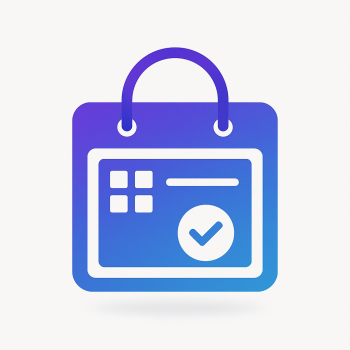Magento 2 and Blockchain: Potential Use Cases for E-Commerce

Magento 2 and Blockchain: Potential Use Cases for E-Commerce
Blockchain technology has been making waves across industries, and e-commerce is no exception. If you're running a Magento 2 store, integrating blockchain could open up exciting possibilities—from secure payments to transparent supply chains. Let’s break down how this tech could work for your online business, even if you're just starting to explore it.
Why Blockchain for Magento 2?
Blockchain is essentially a decentralized ledger that records transactions securely and transparently. For e-commerce, this means:
- Fraud Prevention: Transactions are immutable, reducing chargebacks and fraud.
- Supply Chain Transparency: Track products from manufacturer to customer.
- Smart Contracts: Automate payments and agreements without intermediaries.
- Tokenized Rewards: Create blockchain-based loyalty programs.
Now, let’s dive into some practical ways to integrate blockchain with Magento 2.
1. Secure Payments with Cryptocurrency
Accepting crypto payments can attract a global audience and reduce transaction fees. Here’s how to integrate a basic Bitcoin payment gateway in Magento 2:
// Example: Adding a custom payment method in Magento 2
// File: app/code/Magefine/BlockchainPayment/etc/adminhtml/system.xml
<config xmlns:xsi="http://www.w3.org/2001/XMLSchema-instance" xsi:noNamespaceSchemaLocation="urn:magento:module:Magento_Config:etc/system_file.xsd">
<system>
<section id="payment">
<group id="blockchainpayment" translate="label" type="text" sortOrder="100" showInDefault="1" showInWebsite="1" showInStore="1">
<label>Blockchain Payment</label>
<field id="active" translate="label" type="select" sortOrder="10" showInDefault="1" showInWebsite="1" showInStore="1">
<label>Enabled</label>
<source_model>Magento\Config\Model\Config\Source\Yesno</source_model>
</field>
<field id="title" translate="label" type="text" sortOrder="20" showInDefault="1" showInWebsite="1" showInStore="1">
<label>Title</label>
</field>
</group>
</section>
</system>
</config>
You’ll also need a module to handle crypto transactions via an API like Coinbase or BitPay.
2. Supply Chain Tracking
Blockchain can verify product authenticity by recording every step of the supply chain. Here’s a simplified way to store product journey data:
// Example: Storing blockchain-based product history
// File: app/code/Magefine/BlockchainSupplyChain/Model/ProductHistory.php
namespace Magefine\BlockchainSupplyChain\Model;
class ProductHistory extends \Magento\Framework\Model\AbstractModel
{
protected function _construct()
{
$this->_init('Magefine\BlockchainSupplyChain\Model\ResourceModel\ProductHistory');
}
public function addHistoryEntry($productId, $event, $blockchainHash)
{
$this->setData([
'product_id' => $productId,
'event' => $event,
'blockchain_hash' => $blockchainHash,
'created_at' => time()
])->save();
}
}
Customers could scan a QR code to see the product’s verified history.
3. Smart Contracts for Automated Processes
Smart contracts execute automatically when conditions are met. For example, releasing payment to a supplier when goods are delivered:
// Example: Ethereum smart contract snippet (Solidity)
pragma solidity ^0.8.0;
contract SupplierPayment {
address public supplier;
address public buyer;
uint public amount;
bool public delivered;
constructor(address _supplier, uint _amount) {
supplier = _supplier;
buyer = msg.sender;
amount = _amount;
}
function confirmDelivery() public {
require(msg.sender == buyer, "Only buyer can confirm");
delivered = true;
payable(supplier).transfer(amount);
}
}
You’d need a Magento 2 module to interact with Ethereum via Web3.js.
4. Decentralized Identity for Customer Logins
Blockchain can replace traditional logins with secure, decentralized identities. Here’s a conceptual approach:
// Example: Authenticating via blockchain wallet (pseudo-code)
// File: app/code/Magefine/BlockchainAuth/Controller/Login/Verify.php
public function execute()
{
$walletAddress = $this->getRequest()->getParam('wallet');
$signature = $this->getRequest()->getParam('signature');
if ($this->blockchainVerifier->verifySignature($walletAddress, $signature)) {
$customer = $this->findOrCreateCustomer($walletAddress);
$this->customerSession->setCustomerAsLoggedIn($customer);
}
}
5. Tokenized Loyalty Programs
Instead of points, issue blockchain-based tokens that customers can trade or redeem:
// Example: ERC-20 Loyalty Token (Solidity)
pragma solidity ^0.8.0;
import "@openzeppelin/contracts/token/ERC20/ERC20.sol";
contract MagefineToken is ERC20 {
constructor() ERC20("Magefine Loyalty", "MAG") {
_mint(msg.sender, 1000000 * 10 ** decimals());
}
}
Customers could earn tokens for purchases and spend them across partnered stores.
Implementation Challenges
While promising, blockchain integration comes with hurdles:
- Scalability: Blockchain networks can be slower than traditional databases.
- Regulatory Uncertainty: Crypto regulations vary by country.
- Technical Complexity: Requires expertise in both Magento 2 and blockchain development.
Getting Started
For Magento 2 store owners interested in blockchain:
- Start with a simple crypto payment gateway.
- Experiment with supply chain tracking for high-value items.
- Consider hybrid solutions that combine blockchain with traditional systems.
Several Magento 2 extensions already offer blockchain features—check out Magefine’s marketplace for options that might fit your needs.
Blockchain isn’t a magic bullet, but for specific e-commerce use cases, it offers compelling advantages. As the technology matures, we’ll likely see more plug-and-play solutions for Magento 2 merchants.
Have you experimented with blockchain in your Magento store? Share your experiences in the comments!





